|
Before we talk about George Floyd, we have to talk about Eric Garner. Taking a step back deepens the picture.
1. The Landscape On July 16, 2019, I walked into a coffee shop at 2nd and Lenora. The New York Times headline inside caught my eye because it mentioned Garner’s name, whom I’d written about in the days following his murder in 2014. Five years later, this headline read, “Eric Garner’s Death Will Not Lead to Federal Charges for N.Y.P.D. Officer.” I paused. For me, the Garner tragedy represented the quintessential contemporary example of the American Problem. Why? Perhaps a better symbol is the prison system and the legalized slavery it perpetuates. I was as shocked as anyone else to learn about how black men were rebranded as dangerous, more than merely dense, in the days following the ratification of the 13th Amendment, the better to justify their arrest (the 13th amendment prohibits slavery– except among prisoners). “Reconstruction” indeed. Or that our government made widespread, calculated efforts to link blacks and drug use in the public consciousness during the Vietnam era (more by me on all of that here). These are broad-ranging attempts at subjugation undertaken by the highest institutions in the land and they are infinitely complex, often too pervasive to see clearly. They’re ineffective as symbols. 2. What Eric Garner Means The Garner murder, conversely, coalesces all these oppressive systems into one succinct moment. Four hundred years of inequality, fear and hatred are wrapped up in a few seconds, and as of the July 16, 2019 Supreme Court announcement, we can sit with the truth of the American state of things. Here, an armed white man can kill an unarmed black man who's crying for help, be recorded on camera, and be legally untouchable. I first wrote about Garner here, offering some hopeful words on what we can do now, how we can look at others. I noted what the folks on my (largely black) bus were saying after Michael Brown– that cops have a tough job. That there's more than one side to every story. That Black Lives Matter protesters are always white, and that's okay, because we've got other obligations keeping us down. That we've gotta keep on keepin' on. I was struck by their optimism. Of course there are countless unjust murders of poor blacks by whites in power. But as I stood there in the coffee shop, dumbstruck by the acquittal announcement, I wondered: Do those murders mean less? Or more? How has the Court's decision further solidified our understanding of the state of prejudice in America? To what degree will it help people recognize this is not a problem of individuals but something bigger, the insidious "System" so eloquently articulated in Steinbeck’s The Grapes of Wrath, of institutional and unchecked government corruption not simply at the local level but every level? 3. Dark Night of the Soul I looked at the front page and realized I was sobbing in public. It wasn't the picture of Garner's daughter on the steps of the Supreme Court, as you might assume. It wasn't the right-side column about Trump being denounced by the House as racist. It was the Garner article not mentioning the reason for the dropped charges until the end of the article. You had to turn the pages and find it buried. As if it wasn't important. It was the reminder, which I'm ashamed to say I sometimes need, that black people are told they are dirt by all levels of society, all the time. Try to imagine it, my white friends, and consider how it might influence your perspective. It's not the same as getting bullied or mistreated by this man or that company. It's the highest, most respected institutions together colluding to reinforce your suppression and limit your rights. How might you begin to think about the world? About yourself? (More on that at the bottom of this post.) Can't keep the black man down, a song says. How quaint. Keeping the black man down is what the American societal infrastructure is all too adept at. Keeping them poor and therefore limited in the chess moves they can make; uneducated, and therefore unaware of the progress they can instigate; demonized, and therefore unattractive to others searching for solidarity. I wept because I knew how my black friends would read the headline. This was an article whose informed takeaway was, Choking a defenseless black man to death in broad daylight is legal. A strange, sick feeling came over me: the impossible has happened. They managed to kill a man twice. 5. What I Do Love About America The most appropriate and the most inappropriate word for this travesty– Garner, Floyd, Brown and others– appear to be the same: Unamerican. Appropriate, because the values this country is based on emphasize personal freedoms and exist in complete opposition to such a denial of the right to life. Inappropriate, because America has for so long involved an unspoken problem such that all aspects of American Society are now best understood as they relate to the "peculiar institution." Our government's ongoing decision to ignore the legacy of slavery has come to define what America is: a contradiction at best, a hypocrisy at worst. No, there is only one adjective for this problem: American. I write this as someone who loves the idea of America and loves living in it. I am fully aware how much infinitely better life is here, at all class levels, than so many other places. The best evidence for this is the tenacity with which so many people give up their lives to start over here at great cost. Only here will you find overweight homeless people. Here is where you come so you can speak your mind, pray, wear your hair down, be single, marry as you choose, get a trial, be allowed an education as a woman, vote, drive, divorce, access information, get around though disabled, not have to enlist, speak any language you like (there's no official one), have access to the best passport in the world, and, of course, chew gum. Some countries don't allow you to buy a house, defend yourself, or go outside alone. Some countries consider domestic violence legal. I love this country. It's the only one whose founding concept incorporates the mutable and evolving nature of the human organism. Were it that our founding fathers were alive to remind us, as they already once did, that their documents need to be updated with the same tenacity. 6. Life in the 21st Century There were no riots on July 16, 2019. I was amazed. Any previous generation would’ve taken to the streets with helpless rage and fire. Isn’t violence the one voice always available to the oppressed? No, actually. Not anymore. People are quiet now. The word has gotten out, and I don't have to ask them why. I looked around at my fellow coffee shop customers. These are the youths who should be just as angry as those protesters of old. But we knew our place now. We knew we couldn't protest. Why? Because modern life carries too great a risk. Societal infrastructure has shifted, such that protesting gets you into trouble in a way it never used to. Life is costlier now, and freedom much easier to lose. You can't afford to get arrested now. To fix a broken limb. The defining aspects of material success in the Twentieth century– getting married, buying a house, starting a business, raising children– these are all much harder to do now, and far more expensive. In the 1960s, a waitress job would support a single mother and her child. That's impossible today. You can't buy land anymore. You can't get an apartment with an felony record. Or trust you can get another good job after being fired from this one. The class of people who would protest can no longer guarantee the security of their place as citizens in society. Violence is no longer the voice of the oppressed. Survival is the voice of the oppressed, except survival is silent. It isn't a voice. But it's how we get by. Complicating all this is the emerging truth that systems are too corrupt for protests to accomplish much. No better example exists than the 2017 Women's March (my thoughts on being in it here), the first global protest since the invention of the internet and therefore the largest in history. It was the first time 5 million people did the same thing at the same time, and no meaningful change came of it. (Now, if that many people had voted...) 7. With Blood and Fire Which brings us to Mr. Floyd. In this new culture which has tried to suppress protesting by limiting the rights and futures of those who do so; which has attempted to normalize brutality against black men, by way of the court acquittal above and elsewhere; which is set upon by the twin blights and enormous distractions of terrible leadership and a killer virus; in the new contemporary urban culture of docility and retreat from conflict for worse or better… Even in this environment, under these circumstances, people have shown they still care. They have passionately expressed themselves with the primordial, elemental tool of violent force. What does their unchecked fury reveal? I would argue it proves real their innate hunger for fairness. It unmasks a long-thwarted but unstoppable boiling desire for balance in the serving and order of things. In their violence, yes, innocents will be destroyed, fears stoked and flamed, wrongs made worse before they are better… but theirs is a thirst for justice. And while justice may not exist in nature, it most certainly lives in the human soul. We disagree on what it is, but we all believe in each our own ideas, and we lean toward our definitions of goodness. I believe humans are basically good, and I believe the explosive outpouring happening now paradoxically proves that. I would be crushed if there was no response to this society we live in now. Devastated. I had begun to assume that people cared, but didn’t say so out of fear; that they felt shackled by the physical and institutional dangers of taking to the streets, and thusly that protesting was a thing of the past. I am glad to be wrong. The chaos in the streets is most definitely called for. I don’t condone it because I don’t condone violent action, especially political violence, which too often harms uninvolved persons. I would call it misguided, even hypocritical. There is no dignity in lowering yourself from abused to abuser. But I also know it is not my place to decide what is condonable. 8. The Boiling Point George Floyd, a kind man and upstanding citizen by all accounts, will now live forever, if perhaps not as he might have wished. If Mr. Garner’s death represents everything wrong with American race relations in a single gesture, then Mr. Floyd’s murder exemplifies everything wrong with contemporary society in a single gesture. This is about more than race. Floyd dying is the catalyst for the anger of the masses, but not its origin point. The people are angry about all of it. Floyd forcefully reminds us what we’ve become accustomed to is wrong. We have tolerated an unaddressed history of slavery, traditions of lynching, shooting, and humiliating black men, a system for perpetuating slavery by way of prisons, judicial and legislative action that targets persons of color in the areas of housing, crime and employment, unchecked abuses of power and misappropriation of taxpayer resources, a flawed election system, a casual disregard for women’s equality and safety, a vehement denial of women’s bodily rights and rights as workers, a hyperwealthy elite hoarding most of the world’s wealth, the resulting unchecked poverty, a backbiting political system locked in unceasing standstill, disruption and mistreatment of immigrants seeking asylum, separation of families and the rebirth of concentration camps, a newsmedia swallowed by editorial opinion, a woefully mishandled medical crisis, a president who encourages and normalizes prejudicial attitudes against most demographics, and an ignorant and uneducated populace who perpetuate such prejudices and others. We tolerated all of those things until George Floyd forced our eyes open. He was the last straw on this towering heap of injustice, a heap we’ve been feeling all the more potently in these days of poorly checked pestilence and plague. There is a desire for good in our frenzied souls, and people don't know where to put their energy. How to express their passion. Society has diminished the language of kindness. Some of us have always spoken it, sure, but everyone else still carries the memory of principle. I find it almost touching, the way it's coming out, burping forth in formless savagery. You can take issue with the expression, but you can't blame the intent. Today's righteous chaos would be met with pride by the author of these lines: "Whenever any form of government becomes destructive of these ends [life, liberty, & the pursuit of happiness], it is the Right of the People to alter or to abolish it, and to institute new Government." That's not from some anarchist's cookbook. That's the Declaration of Independence of the United States. Thomas Jefferson writes further in the same document: "When a long train of abuses and usurpations, pursuing invariably the same object, evinces a design to reduce [the people] under absolute despotism, it is their right, it is their duty, to throw off such government, and to provide new guards for their future security." Justice does not exist in nature, but it lives in the human soul. And it cannot be eradicated.
6 Comments
What will we call each other sixty years from now? Sixty years ago we thought we knew. We didn't. Some of it won't be the same, and some of it will. The delirious human project will continue forth, and from time to time we'll look back on today. These were the names we used to use, that have been said and will be said again– sweet nothings of love and hate and everything in between.
Which works for me. This latest list (same the earlier three below) are culled from the last 2 years, and include many of my personal favorites. Here goes~ Dream Machine Family Big Man Little Man Young Man My favorite Millennial The famous One Time and a Half Hollywood Doogie (this one just won't go away...) The Ghetto Tour Guide Could I Get a Transfer King Bus Driver Captain of the Ship Number 7 Adam Jonathan Nick White Woman Bubble Tea Mr Kind Hearted Mr Friendly The Old Guy Who Looks Really Young The Young Father of Metro Ma'am Nigger (as an epithet, on the 5) Nigger (as a term of endearment, on the 7) My Son Korean Bus Driver Homes Lil Bro Caballero Rookie Patrick Nerd Objectively the Best Bus Driver in the City Ryan The Personification of the Movie Amelie The Natalie Portman of Bus Drivers The Ernest Hemingway of Bus Drivers The Studs Terkel of Bus Drivers The Mister Rogers of Bus Drivers I'll see you out there. Other names Nathan gets called! A list in three parts: 1, 2, 3. His name is Vern. Why does this Norman surname, which means “alder,” seem so appropriate? For me the title calls to mind verdant, as in burgeoning green growth, and verve, as in Vern’s beautiful toothless grin every time he steps on. He’s the friendly neighborhood stalwart, the fifty-something black American face with the scruffy (and I do mean scruffy) beard and a kind word for everyone.
I love this guy. I particularly enjoy how unkempt his appearance is. His good humor offsets it perfectly, upending expectations and lighting up the other passengers with newfound knowledge of what’s possible. He makes you look differently at every soul with holes in their coat, tattered sagging jeans, uneven fingernails and shoes worn down past the heels. “Hey, Vern!” Someone behind me muttered, “Aw you know Vern?? Das wassup!!” “How you been doin?” I asked. “Aw, I'm…” He trailed off, unable to give a pat answer. He was pushing a walker, which I’d never seen before. He’d been a cane man or less up until now. I tried to cheer him up. “Good to see you're still hanging in there.” “Yeah. They got me in this walker though.” “I hope it helps a little.” “Yeah, it do.” “It's always good to see you man, still going strong. You always have a smile. Any man that could smile in this modern life– that's beautiful, dude! I respect that so much!” “Thanks man! Ah could still smile 'cause a friends like you!” “Aw thanks, man!!” Ideas are best countered with other ideas, and emotions best conquered with other emotions. He seemed a touch demoralized, reduced by the vagaries of old age. We know it’s coming, but somehow we never believe it’ll really reach us… until it does. One day you and I will struggle to stand from sitting, or need help in the bathroom. We will be lucky to live to such an age, and will hopefully then be better equipped than now at putting pride aside. I endeavored to restore his mood tonight as he has so countlessly done mine over the years. I like to think we got somewhere together, turning our feelings around in the space of a few words, gifting each other with a new slant; a reminder of our mutual respect and appreciation. Love. It is the name underneath all good things. In this post from May of last year I described him thus, writing that I’d never seen:
“a face this scruffy, shaggy, stubbly, brow-beaten, aged, hollow, and slight. None of the Erics I sat next to in school dragged around a garbage bag large and lugubrious enough for me to fit inside of– or at least, not yet. This Eric did, though, and I was sorry to have forgotten his name, because he remembered mine. I'll have to build up the nerve to ask him again– again– someday. His voice was raspier than a Leonard Cohen buzzsaw, and his name, ordinary as it was, served as a reminder that he was as we are, regular folks trying to make something of ourselves, for a month or for an hour." As it turns out, I was able to work up the nerve to ask his name, which is John. Tonight John said only one thing, but it made my night, perhaps because, like many of things John says, it was so completely unexpected coming from such a gruff countenance. When I can manage to understand his slurred voice, I usually come away feeling moved. This evening he didn’t say anything for the whole ride– until he was ready to leave. He just watched me as I worked with the people and gradually got us block by block through the Valley. “I'm taking a liking to you," he finally grumbled as he stepped off. "You show genuine concern for your passengers." I call them Mark Twain moments. This was another one. You might not believe a movie where the scruffy street denizen used the phrase "genuine concern" after a period of contemplative observation. But it does happen. I figured I'd get this all into one place. I hope these are helpful. Best of luck, and I'll see you out there!
Driving These are step-by-step tips on zones, turns, wire and a lot more, with personal commentary by yours truly! We do one full loop. All sections assume you have a 60-foot trolley and are driving the connected 7/49 at night. More information in Pt I; this is me, not Metro or Training. They aren't rules, but suggestions and recommendations that have worked for me for twelve-plus years.
People The 7 isn't hard because of driving. It's challenging because of its clientele.
You Take care of your body. It's easier than you think, and your mind will feel benefit.
Morale Let's be our best selves, and learn from the best in each other. Some thoughts on what I love about my sisters and brothers behind the wheel. Dealing with Fear We're living in a paranoiac's dream right now, and the newsmedia is having a field day playing with our anxieties. Here's a reality check while you're on the job or preparing for going out there.
I'll end by repeating what I write at the end of Driving, Pt IV, above: And now it's time to go to Rainier. Maybe you're excited; maybe you're nervous. That's okay. Maybe you're tired. Maybe you just got yelled at. But you've made it through this before. And because of that, you'll make it through this time too. My trainer Gil told us more than once: This system exists to serve, specifically, the very old people, the students, the poor, the homeless, the disabled people. They are your main customers and you should be grateful to them, because they are why you have a job. Look at all those faces who didn't yell at you, who are so easy to forget. The hundreds who were nice, or just neutral. The maids, moms, babysitters, gas station attendants, secretaries, orderlies, those who are lost and those who are found... The people with hidden lives, unknown lives, who live with as much richness, madness, peace, uncertainty, dreaming, and questioning as you do. Right now, you are here for them. These are your people. Let's take them down the street. We went to the Valley. We went back through town. We came up here. How hard can this last leg be? Well, as it turns out, it’s never over 'til it’s over. It might all blow up in your face in the last five minutes, and you want to be present and at your best for all of it. Touch your toes, arch your back, hang from the bars, and… let’s do this.
Turning onto 45th
Turning onto 15th
43rd
40th
Campus Parkway
Merging onto Eastlake
Crossing Eastlake Bridge
Harvard
Roanoke
10th: Angling into zones
Miller
Newton
Galer
Prospect
Aloha
Roy
Republican
John
Denny
Pine
On Pine
Bellevue
9th
5th
Turning onto 3rd
Third Avenue Positioning
Columbia Street Zone breakdown
Third Avenue positioning, continued
Main
5th
And now it's time to go to Rainier. Maybe you're excited; maybe you're nervous. That's okay. Maybe you're tired. Maybe you just got yelled at. But you've made it through this before. And because of that, you'll make it through this time too. My trainer Gil told us more than once: This system exists to serve, specifically, the very old people, the students, the poor, the homeless, the disabled people. They are your main customers and you should be grateful to them, because they are why you have a job. Look at all those faces who didn't yell at you, who are so easy to forget. The hundreds who are nice, or just neutral. The maids, moms, babysitters, gas station attendants, secretaries, orderlies, those who are lost and those who are found... The people with hidden lives, unknown lives, who live with as much richness, madness, peace, uncertainty, dreaming, and questioning as you do. Right now, you are here for them. These are your people. Let's take them down the street. Where were we. That’s right. We’d just come all the way up from Rainier, and are now in the middle of the right turn onto Pike from 3rd. You activate the switch as detailed in the previous post, and are now ready to do the deed. (Click here for the first post in this series and more explanation.)
Turning onto Pike
8th
Pine
9th
Boren
Bellevue
Summit
Harvard
Broadway
John
Nathan on Ubers and Lyfts
Mercer
Galer
Roanoke
Eastlake
Campus Parkway
15th
42nd
45th
12th
11th
47th
Phenomenal. You did it. you just drove the 7 all the way from Rainier Beach to the U District in one piece. You can do anything in life. See you on the trip back. Part I (7 southbound) here. Part II (7 northbound) here. Stand by for Part IV! Okay, let’s get out of here. You got down here okay. Now let’s go back up. (this is the second in a series of posts detailing driving maneuvers on the 7/49. Click here for Part I: the southbound 7 and explanation of terms and assumptions).
Henderson
Rainier & Seward Park Ave
52nd
Henderson NB
Rose
Holden
Othello
Staying on the wire on Rainier
Frontenac
Graham
Kenny
Orcas
Brandon St S-Curves
39th
Edmunds
Alaska
Genesee
Andover
Skip-stopping recap: northbound version
Letitia St S-Curves
Walden
Martin Luther King, Jr. Way
Mt Baker
Bayview
Walker
Grand
Charles
Dearborn
Jackson
Boren
12th
Maynard
5th
Washington
Prefontaine
James
Skip-Stopping on Third
In practice, what that looks like for you, a 7/49 going north, we can explore in this handy lil’ cheat sheet:
See you in the next post, where we’ll take it to the U District! This one's about the physical act of driving the thing. It's time for tech talk!
Two recent posts dealt with psychological and existential problems of doing this route. Another post offers tips on fights and other security issues. Introduction I first drove it in 2009, and have stuck regularly to it since, including several stints of consecutive years driving it nightly. I've gone down those streets more times than most operators will in their lifetimes, and with the regular blog coming to a close I wish to pass on a thing or two I may have picked up on the way– because it's good to help each other. And because the night 7/49 is the lowest-seniority route. If you're on it, it's because you're nuts like me and you like it, or because you're new. If the latter– welcome. It's going to be fine. Assumptions
On Jackson Street at 5th
Crossing 5th
Maynard
8th
Pulling out of 8th
10th
Merging during switches
12th
Leaving 12th
Resetting your poles from one lane of wire to another
Resetting your poles after losing your poles
Preparing to turn right on Rainier
King
Runners
King to Dearborn
Driving When Late
King to Dearborn (continued)
Charles
Bayview
Mt. Baker
Martin Luther King, Jr. Way
Walden
Letitia Street S-Curves
Andover
Genesee
Alaska
Edmunds to Brandon
Orcas
Graham
Holly
Nathan on cars
Holly (continued)
Frontenac
Othello
Skip-stopping in a trolley
Henderson
51st
54th
57th
62nd
Prentice
64th
Waters
Waters to 57th
57th to Rainier
Seward Park Avenue
Henderson
Sleepers
You did it. Enjoy those precious minutes. Use that Comfort Station, stretch it out, and eat something besides junk food. See you on the next trip! Let’s talk about this. [NOTE: this post predates the new, and fabulous, sleeper security removal teams, which obviate many of the challenges below at night. Know where and when these teams are operating. Tell 'em thanks after they've solved your issues!]
1. The Big Picture First off: remember to think about the systemic view. Yes, it’s annoying that you have to use part of your break waking this person up. You’re thinking, Gosh, why are they so lazy? Appearances can be deceiving. Everyone looks lazy when trying to get valuable sleep, which all humans share in enjoying. Often, you know they aren’t lazy precisely because they’re trying to get rest– which they’re likely doing because they have things to do during the day, like going to the day labor facility in the morning. They want to be properly rested. Folks without such pursuits will be out partying, not obsessing over finding the longest bus routes to sleep on. And, let’s be honest: shelters suck. They involve bedbugs, theft, restrictions and noise. Buses, incredibly, are a safer and cleaner option. Some of the sleepers I’ve known have gone on to rehabilitate their lives and later come up to me with the good news; a number of those stories are on this blog. Others have setbacks the city just won’t set aside the resources to address, and so they remain on the streets for years. Others have developed coping mechanisms and addictions as temporarily solutions to their problems, but which have put them in more severe straits. Still others simply have a standard of living different than my own, and I try not to judge them for that. My worst self thinks they’re unfairly getting a free ride through life, unlike the rest of us, but that opinion is woefully lacking in perspective: remember to note the difference in quality of life between you and them. You’ve got it good. They don’t. They really don't. For whatever reason, the City of Seattle has decided not to fix the problem of housing its own citizens (despite paying enormous lip service to the idea), so for now, until they do, a slew of civil servants have to pick up the slack– we operators, the detox crew, fire department, social workers, shelter crews, volunteers and more. For tonight, let’s just take it a trip at a time. 2. Option One: Wakey Wakey Look, you only have one non-destination rider tonight. Maybe you let them sleep. Maybe you don’t. Personally, I give so much of myself while I’m driving that I like having some time alone to recharge at the terminal. I do ask everyone to leave. I never demand them to, and I don’t yell (make loud sounds with anything except your voice– raised voices sound too much like anger. Try a crescent wrench or Perrier bottle against a stanchion, perhaps; your flashlight is also an option). I also try to refrain from explicitly telling them to leave at the outset, starting instead with the softer, “it’s the last stop.” When that doesn’t work I do say, “it’s time to step out,” or “we gotta step outside here. Thanks for understanding.” “I’m just asking you outta respect.” They will react slowly, but don’t you when you wake up in the morning? Be ready to back away quickly; they may react in self-defense, assuming you’re an attacker. Have the doors open. Be closer to a door. Is your leader at a terminal having trouble waking a sleeper? Go up and help them out. This is dramatically easier and safer with two people. I'll try to preempt things by announcing as we approach the terminal, "Alright my friends in the back, we're almost at our last stop, it's time to start waking up. Just givin' you a heads up." If there is another bus at the terminal in front of me, then I attempt to wake sleepers and put them on that coach. I’m operating on the thinking that that driver will then do the same at his/her next terminal, thus sharing around the sleeper load for the evening. If there’s no other coach, I don’t bother, because where are they going to go? Either way, this is your call. You are entitled to a break if you want one, and if you can take a break with strange men lurking nearby, I look up to you. Maybe one day I’ll rise to your level. You're at an advantage because you get a longer break, rather than wasting minutes waking people. 3. Option Two: Why Bother But that’s just me. You’ve got three guys in here tonight. Maybe you just let them rest, because why bother with all this. It’s too much hassle, and they need the rest. You’re a better (wo)man than I, friend. I want to be like you. But I have a thirst for alone time at the terminal that I haven’t been able to eradicate. This goes against my own philosophy: If you can’t change something about the job, rewire your brain so you’re okay with whatever it is. I’m trying to get there with sleepers, and I’m not there yet. I know that if I let them stay on my bus habitually, my bus will become overloaded with non-destination riders to the point that I won’t have room for riders who actually need to get someplace, and I also know there will be a negative impact on the sanitary condition of my bus. I also like maintaining a sort of consistency: when they see it’s Nathan driving, they’ll think, Oh, he’s nice… but he doesn’t let people stay on. It's predictable in a way I hope minimizes conflict. They know what’s up. “I just need some alone time, you guys, no hard feelings. You’re welcome to join me again in ten minutes, or if you don’t want to wait, there’s that bus in front of me.” If I didn’t have to worry about sleeper overloading, I don’t think I would much care about whether they’re on or not, but I’m easy to find, and I do the same route nightly, and I really like decompressing at the terminals. I think I have anxiety over waking them because it’s a moment of potential conflict, though I have to admit I’ve never once had a physical altercation issue with a sleeper. Hopefully you’re better than me and none of this irks you, and you’re able to achieve a level of compassion I hope to one day get to. Maybe you’re awesome, like Paul Margolis is, and you can take a nap with six sleepers on board. If you can’t beat ‘em, join ‘em! 4. Option Three: Work With Me Here You can meet them halfway. Tell them they can stay once it’s after midnight, when there’s less buses. Or let them stay on at one terminal, but let them know you’ll ask them to step out when we get to the other end. I would do this on the 5, and it got me a lot of goodwill. Or just check in on them, if you feel it’s safe to do so, but let ‘em stay. I feel better when I do this third option. You can also let them ride throughout the evening until the terminal before your last trip, at which point you check in on them to see if they’re awake, asking them to leave not then but at your next and last terminal (5th and Jackson, in the case of trolley work). 5. Minimizing stress When a sleeper gets on, try not to spend the entire trip stressing about the fact that you’ll have to wake them up later. Don’t think about it. Just don’t. You’ll figure out that guy in the back later. For now, just think about driving. Because one of three things will happen:
6. For the Good of the People– and Yourself Don’t pass a zone just because it has intending sleepers. There may be someone there who actually needs you. Some sleepers suddenly have destinations at a certain point in the night. Marcus rides buses at night, but he has a job he has to get to in the morning. Will likes cruising around, but he has a secret spot of his own he eventually heads to for better rest. Also, you want the passengers to like you, in case something happens. Also, if something happens on your bus– you want your bus to be crowded. Because that means more people between you and the incident, and more people who can help you. Go out there and gather people. It’s counterintuitive, but it will help you. See you at the terminals! |
Nathan
Archives
July 2024
Categories |
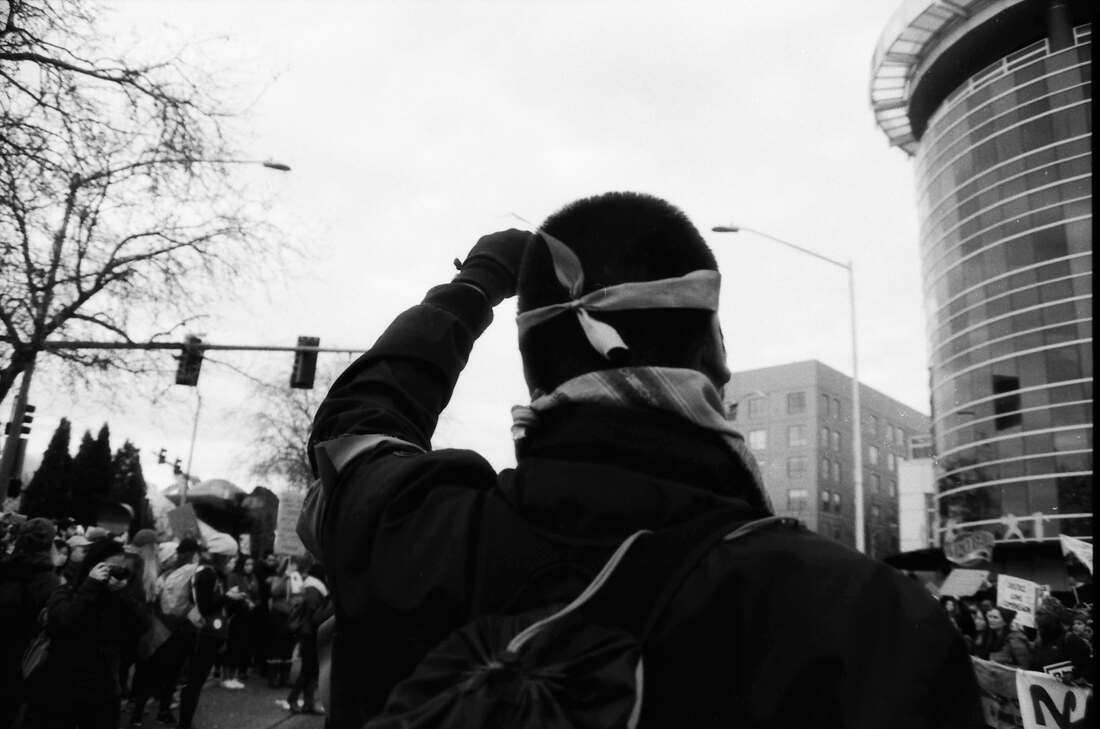
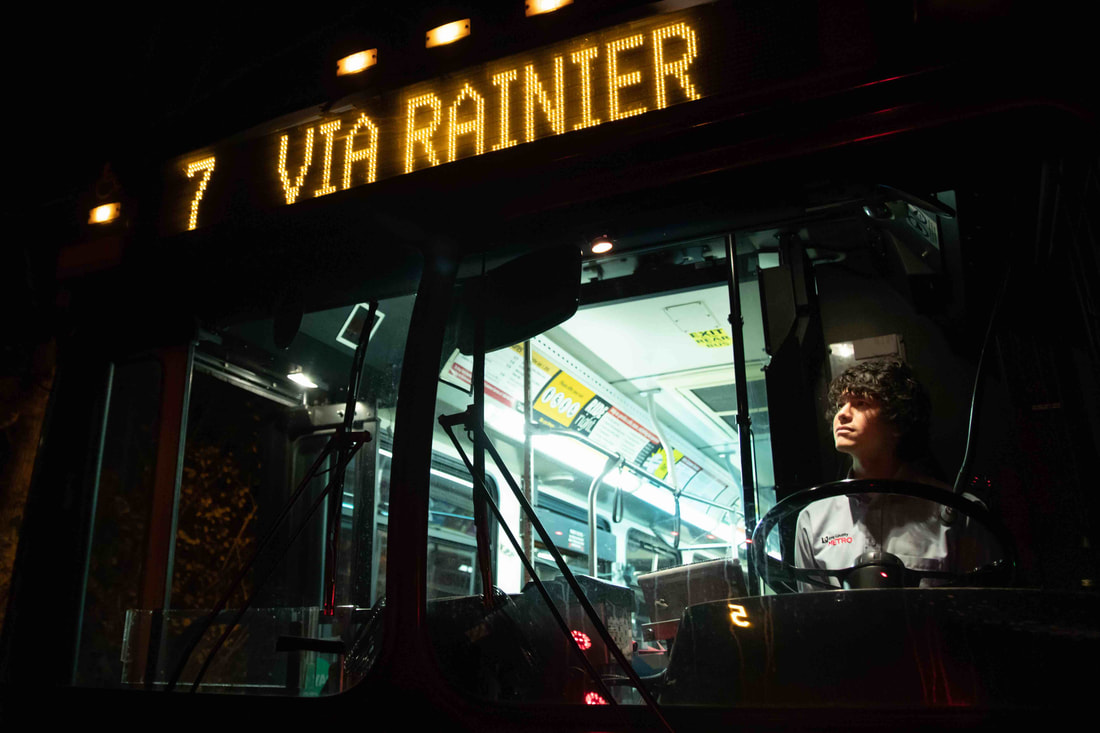

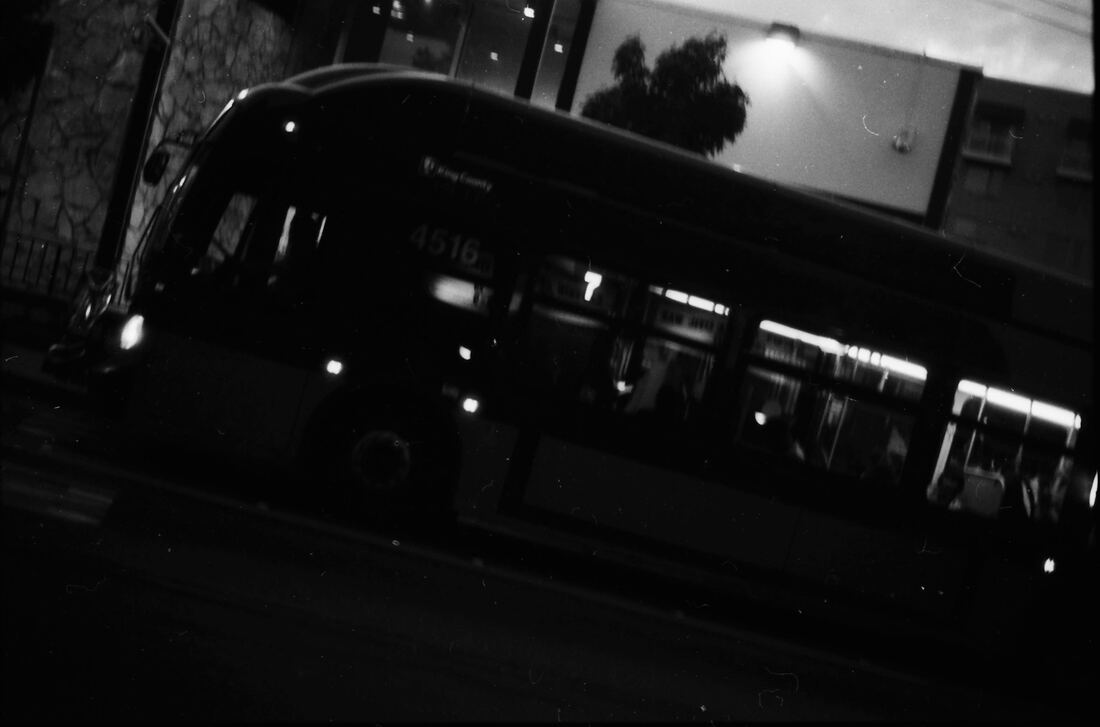
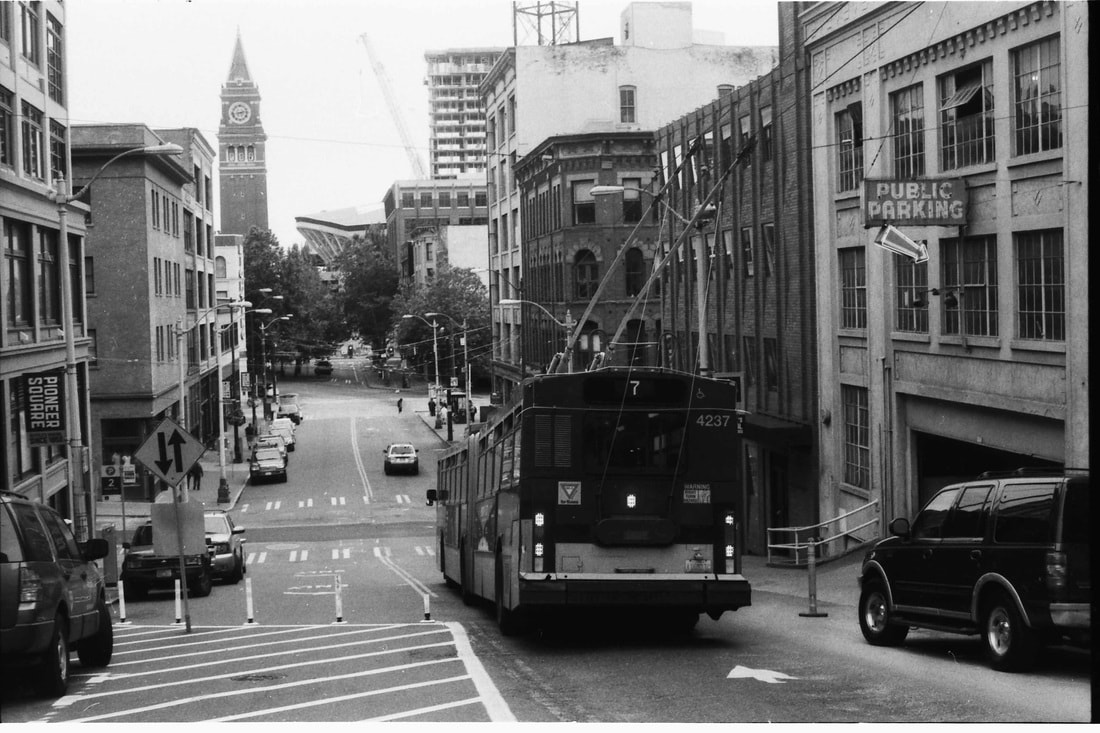
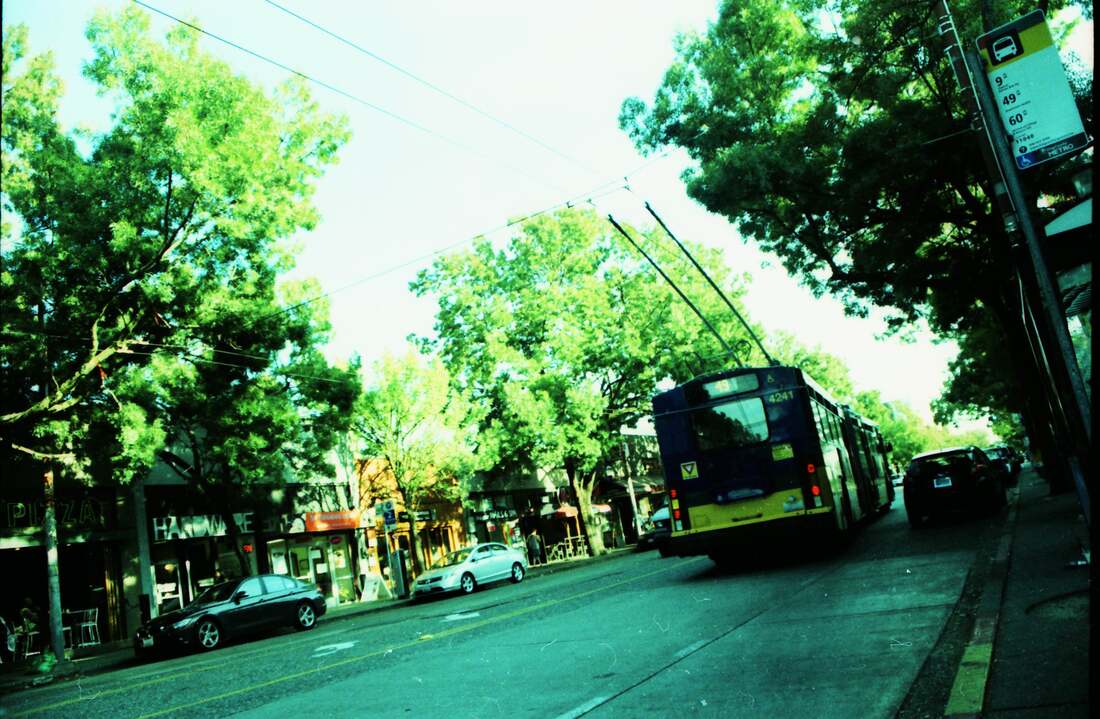
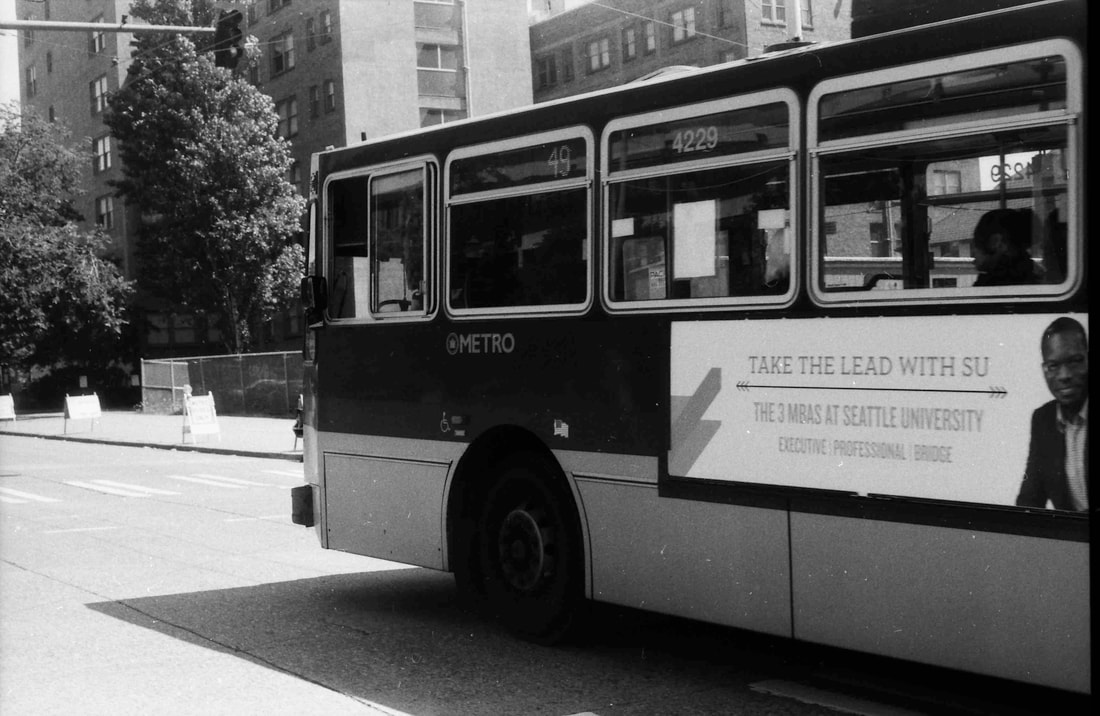
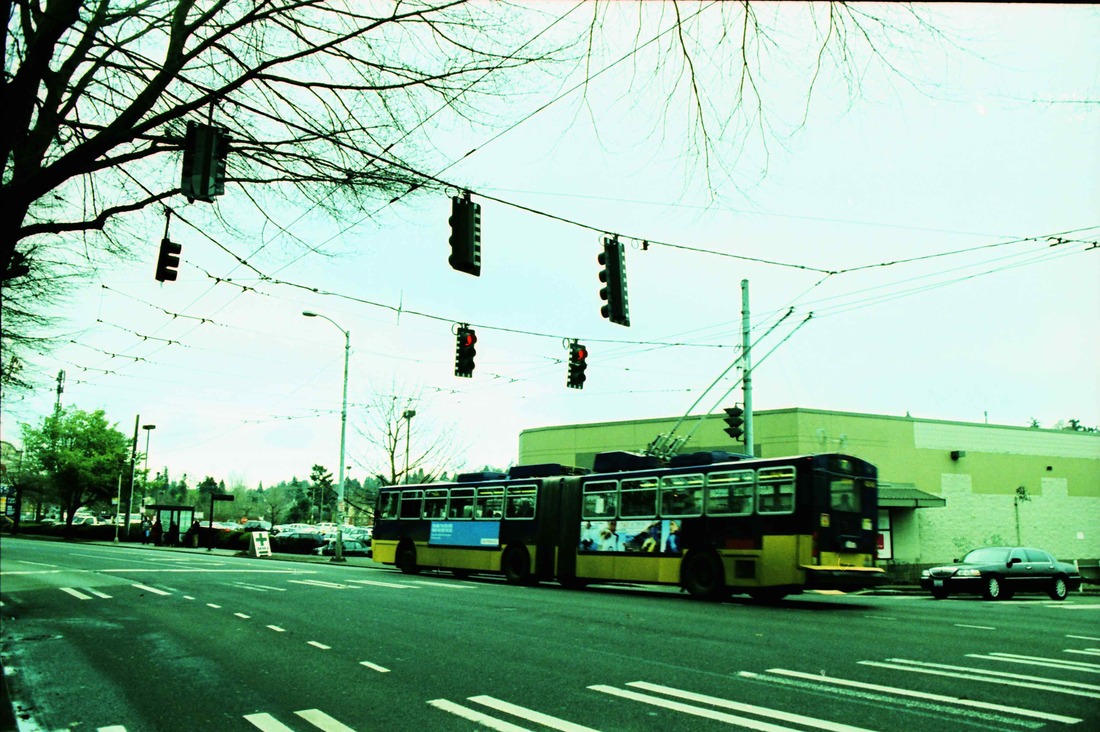
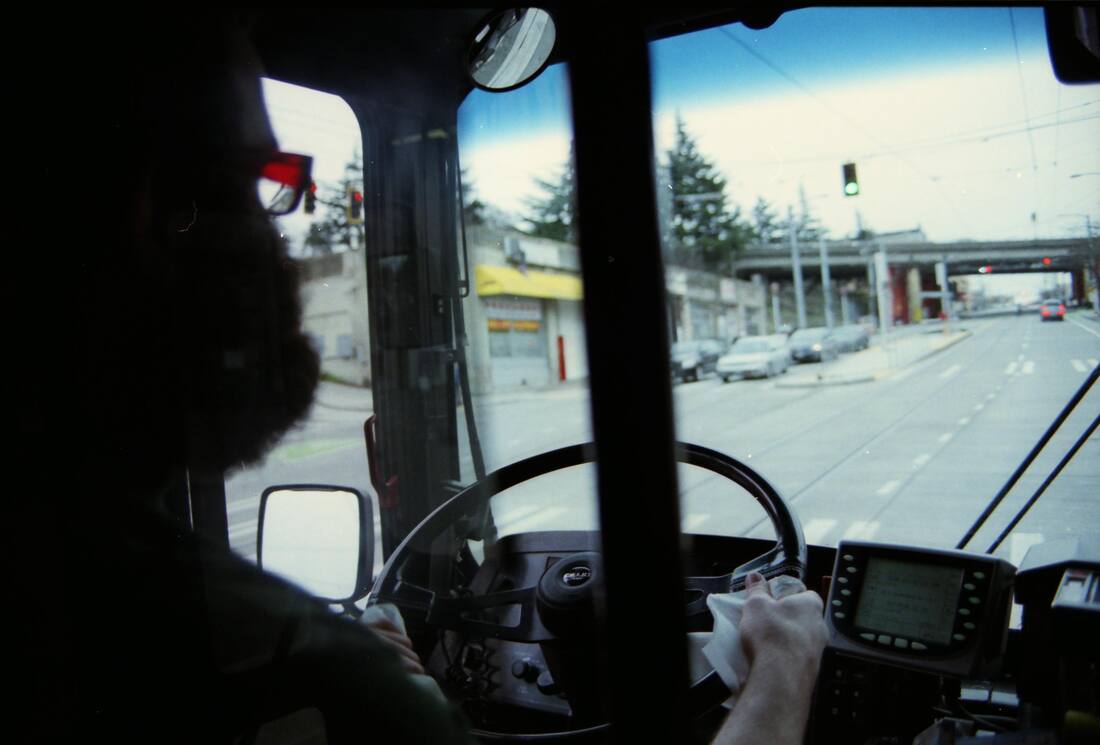

 RSS Feed
RSS Feed
